|
In Margret Attwood's The Penelopiad, It covers the of Penelope, wife of Odysseus and queen Of Ithaca, from her point of view in the underworld, long after her death. Penelope said that after people die they have a choice of reincarnation back into the normal world. She says that many people use this for many different reasons such as trying to relive their youth or adventure. Penelope does not reincarnate, however Odysseus does very often. He will stay with Penelope and they seem to enjoy themselves and have a good time, but he always leaves to reincarnate. 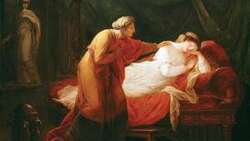 He always eventually leaves without an explanation. There could be many reasons as to why he leaves, because Odysseus has always been a strange person. One reason could be that he doesn't love Penelope and doesn't want to spend time with her. As crude as it would be, it is a real possibility. Maybe after all the time he spent away he fell out of love with her . Perhaps he loved someone more like Circe. Maybe he just never loved her in the first place. He could have only married her for her political power. That could be a reason as to why it took him so long to get home. While this is a possibility I don't think this is the reason why. I think Odysseus has some level of love towards Penelope. If he didn't, there would be no reason at all to spend time with her. Another reason that he doesn't spend time with her is that the 12 maids are haunting them because they hold a grudge towards Odysseus and Penelope (rightfully so). The 12 maids could be interfering with Penelope and Odysseus because they do not want them to be happy. They could be doing this to get at Penelope because they blame her for their deaths. I think that this is a real possibility because half of the story is from the maids perspectives. The maids held distain towards the two and it makes sense to try and mess up their relationship. Odysseus may have left Penelope in order to get the maids to leave them both alone. I think the most likely reason Odysseus kept leaving Penelope is because this love for thrill and adventure outweighs his love for Penelope. All throughout his life Odysseus loved the thrill of outsmarting people and adventuring. I think that he couldn't stay in the underworld while he knows there's countless adventures waiting for him. At the end of the day he still loved Penelope but she couldn't satisfy his thirst for adventure.
0 Comments
In Greek mythology, for years, many have looked at Circe as the witch who lived on an Island. But Madeline Miller brought a new light to the character in her novel titled Circe. Miller turned the character from a just a witch on an island into a complexed fleshed out character. She gave Circe real motivations, emotions, and wants outside of Odysseus. Circe was transformed into a real character with a tragic backstory and compelling goal that the reader could empathize with. Miller turned Circe into an important figure in Greek myth and gave her important roles in some of the most famous stories Greek myth has to offer. Miller turned a minor side character in a major story, to the hero in her own story. Circe had become a major character that impacted the world of Greek mythology is so many different ways. Circe has taken part in many different events that shaped Greek Mythology into what it is today. She not only came into contact with some of the biggest names Greek Myth, but also impacted and influenced them. First Circe is responsible for Scylla, the famous sea monster that almost killed Odysseus in The Odyssey. Circe was in love with a mortal named Glaucos and used her witch craft to turn him into a sea god, after this he left Circe and fell in love with a sea nymph. Outranged and heartbroken, Circe turned that nymphs into a terrifying sea monster. That nymph was Scylla.
Circe also aided in the construction of the labyrinth and the minitour. When Daedalus arrived on her island asking for help with her sister Pasiphae. Pasiphae gave birth to the famous minitour that would later be killed by the hero of Athens, Theseus in one of the most famous stories in all of Greek Mythology. Once Circe arrives with Daedalus they get straight to work. Circe casts a spell on the minitour to mange it hunger and Daedalus makes the unescapable labyrinth to keep it in.
Circe is no longer the one dimensional character Homer once portrayed her as. Her impact on the world around her is proof of the large change she went through in this book compared to the Odyssey. Circe changed the world of Greek myth so many times throughout the novel. So many stories would be altered or outright never happen if it wasn't for the involvement she had on the myths. Miller transformed a small character with little to no development into an amazing and fleshed out character that could make anyone cheer for her. vand In Zachary Mason's Lost Books Of The Odyssey, he explores the many different sides of Odysseus. He dives deep not only into his heroic qualities such as his cunning and his leadership skills, but his unheroic traits as well such as his cowardice and arrogance. Odysseus isn't a typical Greek hero like Perseus and Theseus. Odysseus has glaring flaws that are easy to spot, setting him apart from other heroes. With all of his many flaws, at the end of the day, Odysseus is still a hero with heroic traits. Odysseus is smart. very smart, though sometimes it doesn't seem like it. He has many cleaver ideas through out the Odyssey. He told the cyclops Polyphemus that his name was Nobody, so when Odysseus and his men attacked him and the cyclops said " Nobody is attacking me" the other cyclopes never ran to help him. Odysseus also came up with the brilliant idea of the Trojan Horse, that lead to Greece's victory over Troy. However smart Odysseus is, it can't overshadow all of his unheroic traits. His most glaring and obvious flaw is his arrogance. His arrogance put the lives of himself and his crew on may different occasions. On the Island with Polyphemus and the cyclops, Him and his crew were trapped in a cave with a hungry cyclops. Odysseus outsmarted him and escaped by saying his name was nobody. But as his crew sailed away, Odysseus's arrogance got in the way and he said " my name is Odysseus, not nobody!" Odysseus wanted to take credit for his victory and didn't want someone who wasn't real to get the credit. In doing this however, Polyphemus now knew his name and was able to place a curse on Odysseus. Poseidon, god of the ocean and father of all cyclopes, heard his sons call, and sent a massive wave for Odysseus. This wave hit his ship and killed all of his crewmates. 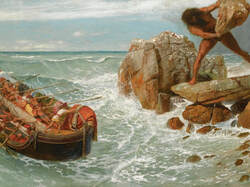 (Odysseus and his men escaping Polyphemus) Odysseus is also very selfish. He often puts his wants and life above the members of his crew. When it came to the sirens, sea monsters who lure sailors to their deaths with their song, Odysseus wanted to listen. He made his crew tie him to the mast so he could hear their song. While he was tied, his crew plugged their ears so they wouldn't be temped to sail towards the monsters. In Odysseus doing this, he endangered all of his crew lives so he could hear the song.
Odysseus's motive throughout the book was to get home to his kingdom and wife. But while on his "noble quest" to return home, he cheated on his wife twice. Odysseus and his crew landed on an Island inhabited by the sorceress Circe. After she turned all his men into pigs, Odysseus and her became lovers. He ended up staying on that island for a year, way longer than he needed, with Circe. He also was stranded alone on a different island with the goddess Calypso. She tried to seduce him many times and Odysseus gave in to the goddess. All of this happened while his wife waited for his return. Odysseus may have been the hero of the story, but he had many traits that don't fit the mold of a hero. In Colm Toibin's House of Names, the point of view varies between Clytemnestra, Electra, and Orestes. Clytemnestra and Electra's parts are pretty similar to Aeschylus's classic poem The Oresteia. However, the final point is very different from the famous original. The final part follows Orestes and his journey back his home Mycenae and how he deals with the turmoil in his family. Before he decides to travel home he ends up staying with Leander and an Elderly Women. While staying there he and Leander become Lovers. Instead of going back to Mycenae and suffering, what if rather than return, he stayed and tried to live a happy life with his lover. 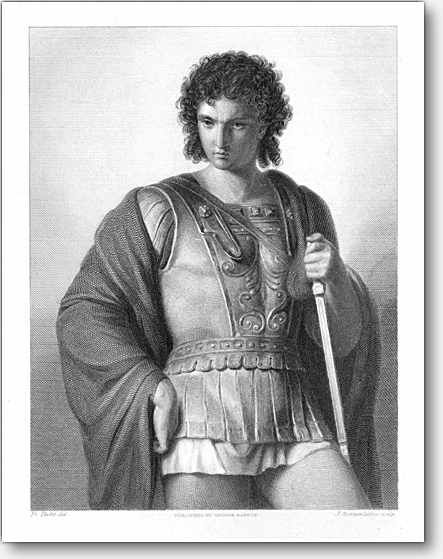 How would the rest of the story play out if Orestes never traveled home and killed his mother? What would happen to Clytemnestra, Electra, and all of Mycenae? If Orestes did this, I think the story could have gone down in three different ways. I think the most likely thing to happen is that Electra convinces someone else to kill Clytemnestra. Electra was very crafty and could have convinced a guard, civilian or even Aegisthus. Electra was becoming more and more like Clytemnestra every day, and I think she could used that to even convince Aegisthus to kill Clytemnestra to take soul power of Mycenae for himself. (Orestes) Whether she got Aegisthus to kill her or someone else, Electra would have used the death of her mother to become ruler of Mycenae. With Orestes gone, and Leander out of the picture (assuming she dealt with Aegisthus) Electra would be the only person capable of becoming the ruler of Mycenae. Electra could take power after killing Clytemnestra, or Clytemnestra could remain in power and spend her days ruling with Aegisthus at her side. With Orestes gone Electra could not have been able to take down Clytemnestra. With Electra not able to kill her, Clytemnestra would be the sole ruler with no opposition. With no opposition I think Clytemnestra would rule Mycenae until Aegisthus would kill her and take power for himself. I do not think that they had a real relationship. I think Clytemnestra wanted to fill the void Agamemnon left after she killed him and Aegisthus just wanted the political power that would come with being with her. I don't think there was any real love in their relationship, so I think Aegisthus would eventually kill her to gain more power. The final and what I think is the least likely way things would happen is that Electra either sends someone to find Orestes or searches for him herself, and they go back to Mycenae. I think this is highly unlikely because it would be incredibly hard for Electra to find Orestes and bring him back. If she was even able to find him, I think it would be hard to convince him to go back as he had been living with his lover and was happy. But if Orestes was willing to go back to Mycenae, I think the events of the book would play out rather similarly except Clytemnestra would have been around longer. Once Orestes arrives, Clytemnestra will die and Orestes will marry Leander's sister. If Orestes stayed with Leander the events of the book could have changed drastically.
Cassandra's life was dominated by her gift and curse of prophecy, given to her by the God Apollo. Apollo gave her the ability to see events before they happen, but after Cassandra refused to sleep with Apollo, He cursed her so that no one would believe her prophecy. This curse lead to the eventual downfall of Troy and Cassandra her self. What if Apollo never cursed Cassandra, and people would still listen to her prophecies. How would this change the course of Cassandra's life, Troy's fall, and the whole world. (statue of Apollo) Cassandra's prophecies could have changed the entire landscape of not just Greece and Troy, but the entire world. First, Cassandra's gift could have saved her own life. If Priam, King of Troy (and Cassandra's father) listened to her tell him that the Greeks would defeat Troy, He could have used her gift to fight back against Greece and defeat them. With Greece defeated, Agamemnon never would have taken her as a slave. With this event never happening, Cassandra would have never been killed at the hands of Clytemnestra. Instead, she could stay in Troy and live the rest of her life with Aeneas, who never would have become a hero since he would never leave to found a new Troy. Cassandra's gift to see the future could allow the Trojan military to create battle tactics to defeat Greece. With her ability she could warn Priam to no accept the wooden horse that lead to the downfall of Troy. With the help of Cassandra Troy would never fall and that would lead to Aeneas never going on to create the Roman race, which would mean the Roman empire might not have ever came into power. With Greece weakened from the loss, Troy could move in and become the area's leading nation, which could change the entire course of the world.
However, just because people could believe her prophecies, does not mean they would listen. In the book it is clearly stated that Troy wanted to go to war with Greece when It was relieved to Cassandra that Hellen was never in Troy. Troy and Priam had planned on going to war with Greece for a long time and there's a good chance they would not listen to Cassandra. The leaders of Troy would probably be too prideful and arrogant to listen to Cassandra, a woman. They would refuse her help and think they can defeat Greece without the help of a women, which would lead to the end of Troy. Without the curse of Apollo, Cassandra could have single handedly changed the course of the worlds history. If the leaders of Troy were smart and open minded, they could have used her gifts to save the kingdom and all of its people. The curse no longer being a factor would also change Cassandra's life for the better in many different ways. Not being captured and killed by Agamemnon and Clytemnestra would allow her to see many different things in the world like she always wanted. She also would have been able to liver her life with the man she loved, if he would no longer become a hero. With Apollo's curse gone, Cassandra's gift of prophecy could have saved her and all of Troy, if people would even listen. In Aeschylus's The Oresteia, a key character is Clytemnestra, wife of Agamemnon and queen of Argos. In the first play she murders her husband for sacrificing their daughter Iphigenia. She had been planning her vengeance for 10 years while Agamemnon was away fighting Troy. She kills him and with her new lover Aigisthos, take over as new rulers of Argos. This is something that normally is not seen in Greek myth. She is very determined and strong willed in her goals. she is very different compared to the other women we see throughout the plays. For example in The Libation Bearers, Electra formulates a plan to kill Clytemnestra to avenge her father with Orestes, but Electra does not do much in executing the plan. She leaves everything up to Orestes while she watches from the sidelines. Wither that was a tactical move and leaving Orestes with the problems resulting from the murders such as the furies, or she just let the man take care of the physical fighting is up for debate. Clytemnestra on the other hand, took action and killed Agamemnon and Cassandra herself, rather than leaving the job to a man. Other characters think of her having manly qualities. At the beginning of Agamemnon, the watchman describes her as " a woman in passionate heart and man in strength of purpose." (Agamemnon 11). The watchman saying this proves that Clytemnestra is viewed of having both manly and womanly qualities. Clytemnestra also speaks like a man in some points throughout the book. She says "I stand here where I dealt the blow; my purpose was achieved". We don't really see other women speak like this throughout the plays. Clytemnestra knows she is different than the other woman around her. She doesn't think of her self as a "witless woman". Her goals are also very different from what most woman are responsible for in this time. A woman's duties were to stay at home and take care of the children. Clytemnestra did not really care for two of her three chidden. She sent Orestes away, and rarely acknowledged Electra. The only child she really seemed to care for was Iphigenia. Rather than focusing on the normal things women do, Clytemnestra wanted power. She didn't just kill Agamemnon for her daughter, she also wanted to become the head ruler of Argos. Clytemnestra sought power and wanted to prove that she was better than others around her. Her new husband Aigisthos did not become the head ruler of Argos, she did. Her will to fight and determination is greater than any other character in the story, man or woman. Clytemnestra is easily my favorite character through out the three plays. She is far more complex than the characters around her. Clytemnestra has interesting goals and a compelling reason for wanting to achieve them. Clytemnestra shatters all the rules and regulations that her society set up for her and other women. Even when she meet her end at the hand of her son Orestes, she was breaking down the gender roles the Greeks employed.
|
AuthorZach Knackstedt Archives
November 2021
Categories |
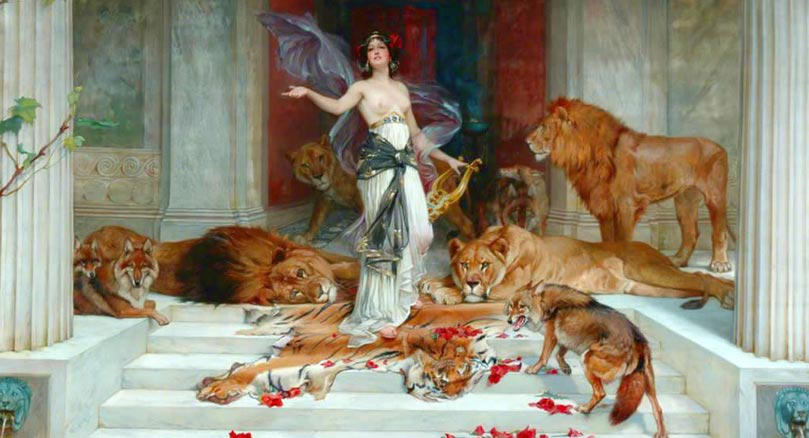
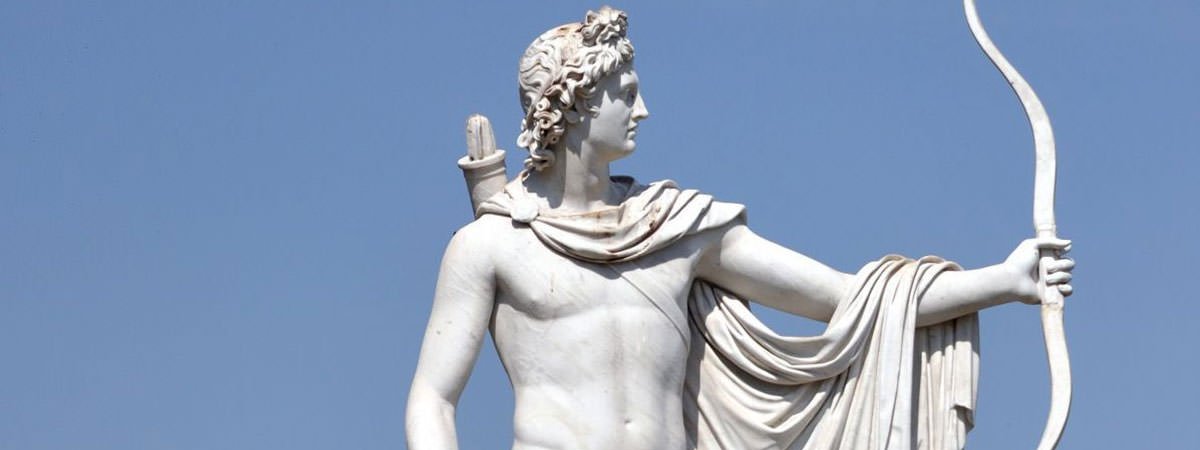
 RSS Feed
RSS Feed
